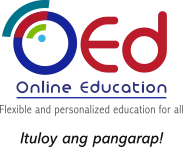
Learning about different programming languages is no longer just for computer science majors or tech enthusiasts—it’s becoming an essential skill for anyone interested in the future of technology. Whether you’re a student considering a degree in computer science or a parent helping your child navigate potential career paths, understanding what a programming language is and why it’s important is a great first step.
Think about all the technology we use daily—our smartphones, websites, apps, even the smart devices in our homes—they all rely on programming languages to function. These languages are the foundation for creating the digital tools that shape our lives.
If you’ve ever wondered how websites are built, how video games work, or how cybersecurity experts protect sensitive data, then learning about programming languages is key to unlocking those answers.
In this guide, we’ll break down what a programming language is in simple terms, explore the top programming languages, and highlight how they are used in various fields.
Whether you’re thinking about web development, app design, or even cybersecurity, you’ll learn how understanding programming languages can open the door to countless career opportunities.

What is a Programming Language?
A programming language is a formal set of instructions that developers use to communicate with computers. Computers are built to follow instructions precisely, and these instructions must be written in a language the computer can understand.
Programming languages serve as a bridge between human logic and machine-level operations, allowing us to write code that tells the computer what to do.
In simpler terms, a programming language is like a translator. Humans think in complex ideas and abstract terms, but computers can only process specific instructions written in code. These languages provide a way for people to write such instructions, which are then executed by the computer to perform tasks ranging from simple calculations to creating entire websites or applications.
There are many different types of programming languages, each designed to perform specific tasks or to work better in certain environments. Some languages are more suited for web development, while others are ideal for managing data or cybersecurity protocols.
If you’re planning to pursue a degree in computer science or a related field, understanding what the programming languages are available is crucial, as each has its own unique use cases and advantages.
What Are the Different Programming Languages?
There’s a wide world of programming out there, with countless languages designed for various purposes and applications. However, some languages are more commonly used than others, often because of their versatility, ease of learning, or specific applications.
Here’s a breakdown of the top programming languages that every aspiring programmer should know:
Python
Python is often hailed as one of the most beginner-friendly programming languages. Its simple syntax makes it easy to learn and read, and it’s widely used in fields like data analysis, machine learning, and web development. Python’s versatility and strong community support make it one of the top programming languages for both beginners and experienced developers.
JavaScript
If you’ve ever interacted with a dynamic website, you’ve encountered JavaScript. As the backbone of web development, JavaScript is essential for creating interactive elements on websites. It’s one of the most popular programming languages globally, and its importance has only grown with the rise of web apps and responsive design. If you’re interested in front-end or full-stack development, JavaScript is a must-learn language.
Java
Java is a powerful language known for its flexibility and portability. It’s widely used for building Android apps, enterprise-level applications, and large systems. Because it can run on any platform that supports the Java Runtime Environment (JRE), Java remains one of the most sought-after languages in the tech industry, particularly for mobile and software development.
C++
An extension of the C programming language, C++ is often used in system software, game development, and applications requiring high performance. It’s a great language for those interested in fields like game design or software that interacts closely with hardware.

PHP
Primarily used in server-side web development, PHP is essential for building dynamic websites. It’s a language that powers many content management systems, such as WordPress, which is used by millions of websites globally. Despite newer languages emerging, PHP remains a strong choice for web developers.
SQL
Unlike other programming languages, SQL (Structured Query Language) is specifically used for managing and querying databases. As data becomes increasingly important across industries, SQL is a valuable skill for anyone working in data management, analytics, or development.
C# (C-Sharp)
C# is a language developed by Microsoft and is primarily used for developing applications on the Microsoft platform. It’s also used for creating video games using the Unity game engine, making it a good choice for aspiring game developers.
Understanding the different programming languages will help you decide which one to focus on based on your career goals, whether you’re pursuing web development, mobile app development, data science, or what do cybersecurity professionals do in securing systems.
How Flexible Education Can Help You Learn Programming Languages
With the rise of flexible education, aspiring programmers now have more opportunities than ever to learn at their own pace. Whether you’re a working professional or a full-time student, enrolling in a course at an online university can provide the skills and knowledge you need to master different programming languages.
A flexible education system allows you to take your time and study cybersecurity while balancing other commitments. For example, OEd offers various programs like a degree in computer science and BS Computer Engineering, which cover foundational programming languages and advanced topics relevant to the industry.
These programs not only provide a structured pathway for learning but also offer flexibility in terms of scheduling and course delivery, making it easier for individuals to upskill without disrupting their personal or professional lives.
Why Programming Languages Are Essential in the Future?
As digitalization continues to transform industries, programming languages will remain a cornerstone of the modern world. Whether it’s developing new software, securing systems from cyber threats, or managing huge amounts of data, knowing what the programming languages are and how to use them will be a valuable skill in the future job market.
A deep understanding of programming also opens the door to numerous career paths, from web and software development to cybersecurity and data science. Moreover, with the rise of flexible education, anyone can start learning programming languages at their own pace, regardless of their current skill level or background.
Whether you’re aiming to specialize in web development with JavaScript, dive into data analysis with Python, or focus on what do cybersecurity professionals do by mastering languages like C or SQL, there’s never been a better time to start learning.

Take the Next Step in Your Programming Journey
Programming languages are the foundation of the digital world. They allow us to build software, secure data, and create the technologies that shape our daily lives. By understanding what a programming language is, exploring the different programming languages available, and choosing the right ones for your career goals, you set yourself up for success in a wide range of industries.
Whether you aim to create websites, develop software, or protect sensitive data in cybersecurity, understanding programming languages will open the door to countless opportunities.
If you’re ready to begin your journey, consider enrolling in a flexible education program in computer science or computer engineering at OEd. With the right knowledge and skills, you can master the programming languages that will shape your future.
Contact OEd today to learn more about our programs and take your first step toward a successful career in technology!
